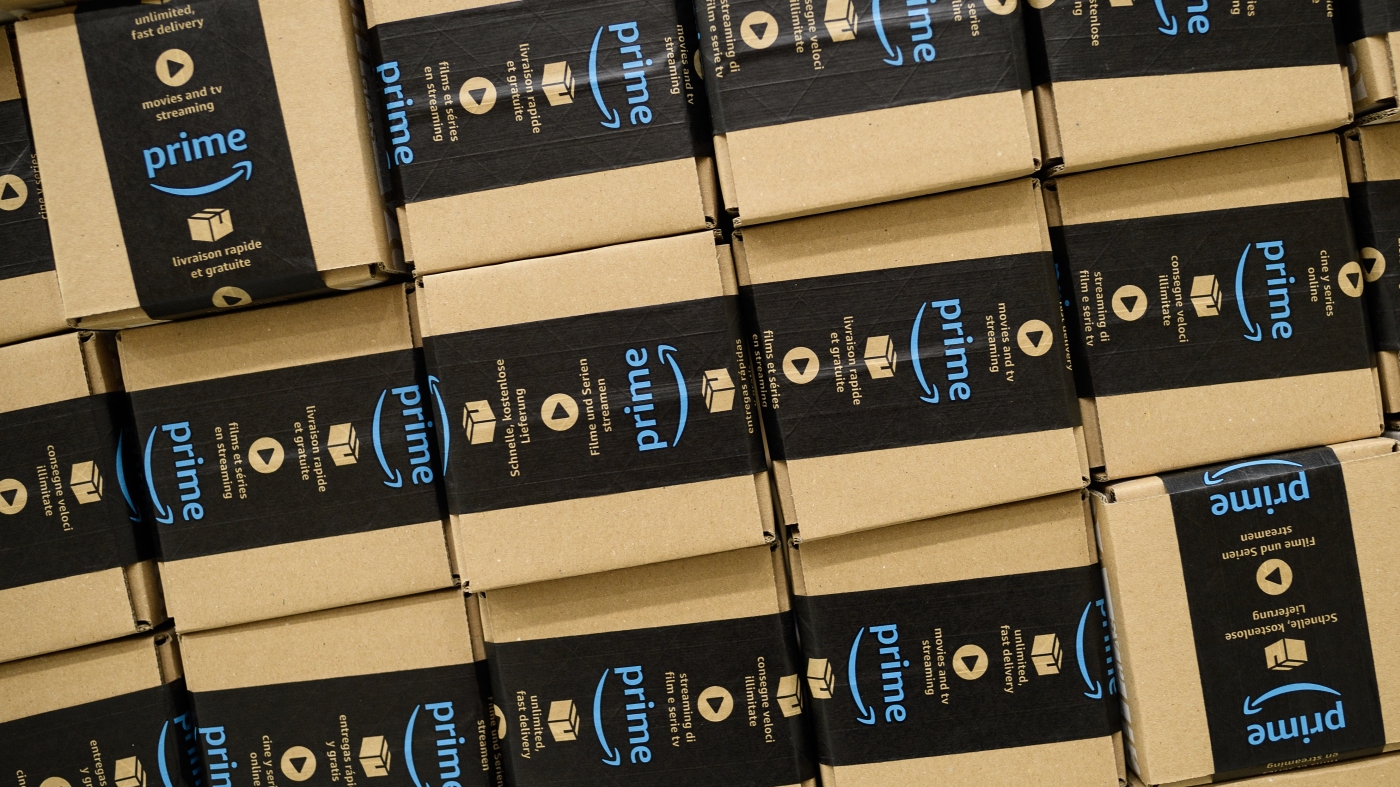Key events
DoorDash takeover of Deliveroo approved by high court judge
Deliveroo’s £2.9bn takeover by American firm DoorDash has been approved by a judge at the High Court.
The London-based food delivery company in May agreed a £2.9bn takeover by its US rival DoorDash that will result in a near-£66m payday for its staff. The San Francisco-based company will pay 180p a share in cash for the London-listed Deliveroo.
The takeover will create a combined firm with a presence across 40 countries and handling about $90bn of orders each year.
At a hearing today, Sir Alastair Norris said the takeover was “entirely straightforward” and that he was “happy to sanction” the move.
Deliveroo, which was founded in 2013 by Will Shu and Greg Orlowski, made sales of around £2bn last year.
DoorDash was also set up in 2013, co-founded by chief executive Tony Xu, who has led the company ever since. It operates in more than 30 countries and delivers over 2.5bn orders a year, resulting in revenues of $10.7bn in 2024. It does not operate in the same countries as Deliveroo.
Xu said in May that he “could not be more excited” about the merger, while Shu said that the move marked a “transformative new chapter”.
In written submissions for the hearing on Tuesday, Andrew Thornton KC, for Deliveroo, said the takeover “will not have any adverse impact” on the company’s creditors and was unanimously recommended by its independent directors. He added that the scheme was also approved by Deliveroo’s shareholders at a meeting in June.
In court, Thornton said that two shareholders had been identified as being sanctioned by the government over their ties to Russia. The barrister said that the transfer of their shares would be “delayed” until “they cease to be sanctioned”, while the judge stated that their shares would be “excluded from the scheme”.
DoorDash is now expected to start a review of the merged group, with a potential reduction of around 1% to 3% of the combined workforce, largely affecting general administrative and business support roles.
It said in May that some of Deliveroo’s offices and support functions would also no longer be needed, because it will not be listed after the deal, which would result in a “small number” of job cuts.
But it also confirmed it would honour the agreement between Deliveroo’s riders and the GMB trade union, while Deliveroo said that DoorDash does not plan to make major changes to its London headquarters.
Earlier this month, Shu announced that he would leave his role as Deliveroo’s chief executive, claiming he wanted to “contemplate his next challenge”.
Deliveroo’s non-executive directors, who include Cafe Rouge founder Dame Karen Jones and Flutter boss Peter Jackson, are also due to step down following the approval of the takeover.
Goldman Sachs sees lower risks of US recession as economy holds up
Strategists at Goldman Sachs are fairly relaxed about the US econmy, saying signals that is sliding into recession have yet to emerge as tariff effects peak.
Despite a sharp slowdown in the labour market, strategists led by Kamakshya Trivedi said the US economy is holding up.
They noted that the overall data picture does suggest an imminent risk of recession, with signs of improvement in better-than-expected consumer data and an uptick in the housing sector. On Donald Trump’s tariffs, they believe that the “worst of the impacts are likely to be felt over the next 3-4 months, and the path beyond this period looks better.
So far, the labor market has slowed, not stopped, and we have moved further through the period of maximum risk.
The more time passes with the economy holding up despite a slower labor market, the more likely it is that the market will look forward to next year, where the headwinds from tariff-induced inflation and uncertainty are likely to be replaced by tailwinds from fiscal support and lower rates, which would create a continued path for equity upside.
Keir Starmer has acknowledged that the government asked a lot from businesses at the last budget, and said their contribution had allowed the UK to take a huge step forward on the path of renewal.
The prime minister said in his keynote speech at the annual Labour party conference in Liverpool:
I wanted to thank every business in our country… we asked a lot at the last budget.
Many companies have complained about the £25bn increase in employers’ national insurance contributions (NICs) that came into force in April. Some publicans say last year’s budget was “worse for hospitality than Covid”.
You can follow the latest on our politics live blog here:
Apparently, going shoeless could boost your productivity at work.
Slippers, socks and the occasional novelty toe warmer are fast becoming part of the office dress code for startups hoping to ease stress and boost creativity.
It might sound like a gimmick conjured up during a yoga retreat, but asking staff to leave their shoes at the door taps into something more serious: how to make the workplace feel a little less like work.
With record levels of work-related stress in the UK, rising burnout and a labour force increasingly focused on wellbeing over salary, even small changes can have a surprising impact.
Inspired in part by Silicon Valley startups where footwear-free floors are reportedly spreading faster than kombucha fridges, some British companies are trialling no-shoes policies as a way to improve focus, comfort and even staff morale.
Natalie James, the founder of the skincare startup, helloSKIN, introduced a sock-only policy at her UK office last year. “Offices are, by their very nature, stressful environments,” she said. “If a little thing like taking off your shoes makes you feel more comfortable – and thus be more creative – then that’s a no-brainer.”
Wall Street’s main indices are on track to open lower on the final day of the third quarter, with investors worried about likely delays in the release of key economic figures because of a potential US government shutdown, which could impact the outlook for further interest rate cuts.
The US government is hurtling towards its first shutdown in six years, with no signs congressional leaders are near agreement on legislation to continue funding beyond the Tuesday night deadline to prevent workers from being furloughed and agencies from shutting their doors.
Congress’s Republican majority is pushing legislation to fund the government through 21 November, but Democrats have refused to vote for it unless it includes a series of concessions centered on healthcare.
Donald Trump convened a meeting of the two party’s congressional leaders on Monday evening, but there was no sign of a breakthrough, with JD Vance, the vice-president, declaring: “I think we’re headed into a shutdown because the Democrats won’t do the right thing.”
However, US stocks have done well through the third quarter, and the benchmark S&P 500 index is on course for its best third-quarter performance since 2020.
Over here, the FTSE 100 index in London has risen by 31 points to 9,331, a 0.3% gain. Germany’s Dax has gained 0.2% while Italy’s FTSE MiB is slightly higher and France’s CAC has slipped by 0.17%.
Retailers say tax rises could further fuel inflation as shop prices jump
Retailers have told the government that tax rises could further fuel inflation as the pace of shop price rises stepped up in September with increases on home improvement and gardening goods offsetting stabilising food prices.
Annual shop price inflation rose to 1.4% in September, up from 0.9% in August, according to the latest monthly report from the British Retail Consortium (BRC) and analysts NIQ.
A year and a half of deflation on non-food goods appears set to come to an end, according to the trade body, with prices just 0.1% lower year on year in September compared with an annual drop of 0.8% in August.
Falling prices on back-to-school items such as laptops dampened inflation on other household items including DIY goods. Annual food price inflation, which has been steadily accelerating all year, levelled out at 4.2% in September – the same rate as in August.
Exxon Mobil to lay off 2,000 workers globally
The American oil and gas giant Exxon Mobil will lay off 2,000 workers around the world as part of a long-term restructuring plan, Bloomberg News reported, citing a memo.
The job cuts amount to 3% to 4% of Exxon’s global workforce, as the Texas-based company is reorganising smaller offices into regional hubs.
Exxon chief executive Darren Woods said he is making “tough decisions” to make the company more competitive in a memo to employees, according to Bloomberg:
The changes we’ve announced today will further strengthen our advantages and grow the gap with our competition, helping to keep us in the lead for decades to come.
Woods is seeking to simplify the company’s sprawling global footprint that resulted from Exxon’s merger with Mobil two decades ago.
The regional hubs will focus on Exxon’s growth initiatives such as oil in Guyana, liquefied natural gas along the Gulf Coast and trading globally. The company recently laid out plans to move staff from Brussels and Leatherhead in the UK, to central London, where many of its traders are based.
The news comes a day after Calgary-based Imperial Oil, which is nearly 70% owned by Exxon, announced it is cutting a fifth of its workforce.
Other big energy companies, including Chevron, ConocoPhilllips and the UK’s BP, have announced thousands of job cuts this year, as the industry struggles with weaker crude oil prices.
Royal Mail owner to rebrand thousands of Collect+ stores as it buys stake
Thousands of convenience stores will be branded Royal Mail Shop, after the delivery company’s new owner acquired a stake in the parcel network Collect+, in the first big deal since it was taken over by a Czech billionaire.
The Royal Mail owner, International Distribution Services (IDS), which was taken over by Daniel Křetínský’s EP Group in April in a £3.6bn deal, said it had bought a 49% stake in Collect+ for £43.9m, which offers access to almost 8,000 pickup points – newsagents, convenience stores, supermarkets and petrol stations.
The launch of Royal Mail Shop puts its brand directly on the high street, with customers able to collect, send and return parcels. Significantly, the shops will be open during evenings and weekends, unlike many Post Office branches.
Shops will sell Royal Mail postage, initially just Tracked 24 and Tracked 48, with more products to follow. This means customers can pay in person rather than online.
The move comes two years after Royal Mail lost a 360-year-old monopoly on delivering parcels from Post Office branches, after Evri and DPD signed deals.
The Royal Mail service is available in 500 shops and will be rolled out more widely in the coming months.
Tata bought slabs from rival British Steel as it sought to beat Trump tariff plans
British Steel has made the unusual move to sell slabs of metal to its rival Tata Steel, as the latter sought ways around Donald Trump’s proposed tariff rules.
The Scunthorpe steelworks in north Lincolnshire – now controlled by the UK government – provided slabs made in its blast furnaces to Tata’s operations in south Wales in recent months, according to steel sources.
Indian-owned Tata was seeking ways to avoid threatened US tariffs on steel not sourced from the UK while its Welsh operations were reliant on buying slabs from elsewhere. However, the proposed rules were later dropped after the UK and US failed to reach agreement.
The UK government took control of British Steel in April amid fears that its Chinese owner, Jingye Steel, was preparing to walk away and leave irreparable damage.
Since taking control, the government has directed British Steel to increase output and hire more workers. Jingye claimed the blast furnaces at Scunthorpe – the last in Britain able to make steel from iron ore – had been losing £700,000 a day.
Ramping up production was seen by some people as a way to improve profitability and ease the financial burden on the government. Earlier this month, the government said that it had injected £180m to British Steel to pay for raw materials, salaries and unpaid bills.
German unemployment rises more than expected in September
In Germany, Europe’s biggest economy, unemployment rose more than expected this month, as the labour market struggles to pick up in a weak economy.
The number of people out of work increased by 14,000 to 2.98 million, according to seasonally adjusted figures from the federal labour office Bundesagentur für Arbeit, higher than the 8,000 increase forecast by economists. The jobless rate stayed at 6.3%.
The number of vacancies also declined, by 66,000 from a year earlier to 630,000 job openings. The head of the labour office, Andrea Nahles, said:
The labour market continues to lack the necessary stimulus for a stronger recovery.
The German economy shrank by 0.3% between April and June compared with the first three months of the year. Leading German economic institutes nudged up their growth forecast for this year to 0.2% from 0.1%, rising to 1.3% in 2026.
Chancellor Friedrich Merz has pledged to get Germany out of its downturn with a big increase in infrastructure and defence spending, but the effects have yet to be felt on the ground.
UK consumer borrowing rises most since October 2024
Consumer borrowing in the UK rose at the fastest annual pace since last October in August, according to Bank of England figures – a sign that household demand remained solid ahead of potential tax hikes in the budget on 26 November.
Consumer borrowing rose by 7.1% in August from the year before, up from an annual increase of 7% in July. In the last three months, borrowing increased at the fastest pace since March 2024.
Ruth Gregory, deputy chief UK economist at Capital Economics, said:
Nervousness about forthcoming tax rises in the budget, in August at least, didn’t put consumers off borrowing and spending.
Mortgage approvals totalled 64,680, down slightly from 65,161 in July. Mortgage lending fell to £4.3bn from £4.5bn.
Smith+Nephew CFO moves to US
The finance chief of artificial hips and knees maker Smith+Nephew will relocate to the US from the UK, citing operational efficiency, with more than half the company’s revenues coming from the US.
The UK company, which makes orthopaedic implants, wound dressings and surgical aids for sports medicine, said its chief financial officer John Rogers will move to the US this week.
Given the significant amount of time the CFO already spends in the US and in recognition of the importance of the US market to the group’s strategy and operations, John, with the support of the board, has decided to relocate there.
This relocation will also allow even closer collaboration with other senior leaders based in the US, supporting focused execution of our business strategy. John will continue to spend a significant portion of his time at Smith+Nephew’s global headquarters in the UK, and at our sites around the world.
Rogers will be employed under a local US employment contract.
The move comes after Donald Trump urged global pharmaceutical firms to invest more in the US, prompting US drugmakers along with the UK’s AstraZeneca and GSK, and Swiss firms Novartis and Roche to announce billions of dollars of investment.



